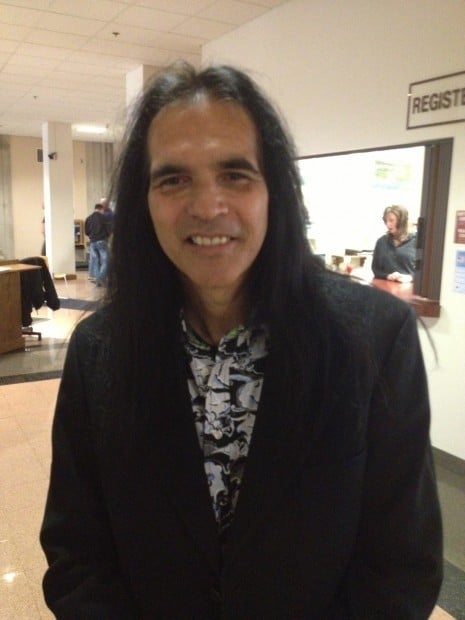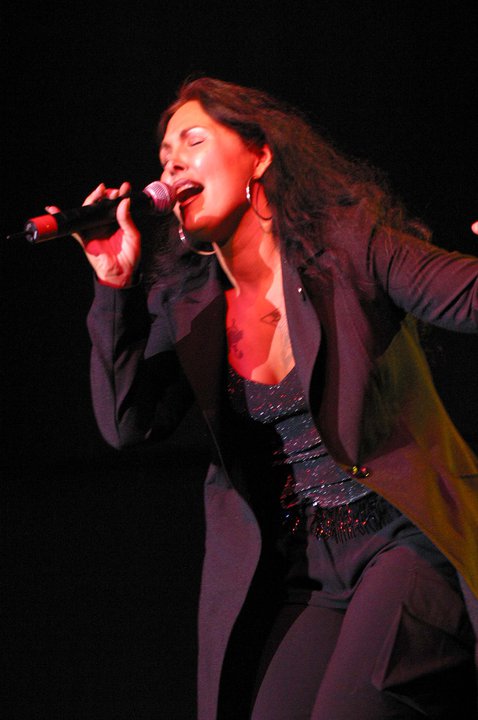 |
| Mary Youngblood |
 |
| Brule, Paul Laroche |
 |
| Star Nayea |
 |
| Eric Schweig |
 |
| Buffy Sainte-Marie |
 |
| Paul DeMain |
 | ||
| Chris Eyre |
 |
| Baby Veronica |
Famous Lost Birds/Adoptees
Born on a Cree reservation in Qu’Appelle Valley, Saskatchewan, Buffy Sainte-Marie was adopted and raised in Maine and Boston, Massachusetts. Her adoptive mother was Micmaq. By age 24, Buffy Sainte-Marie had appeared all over Europe, Canada, Australia and Asia, receiving honors, medals and awards which continue to this day. Her song “Until It’s Time for You to Go,” was recorded by Elvis and Cher, and her “Universal Soldier” became the anthem of the peace movement. For her very first album she was voted Billboard’s Best New Artist. She disappeared suddenly from the mainstream American airwaves during the Lyndon Johnson years. In Indian country and abroad, however, her fame only grew. She continued to appear at countless grassroots concerts, AIM events and other activist benefits. She made 17 albums of her music, three of her own television specials, spent five years on Sesame Street, scored movies, helped to found Canada’s ‘Music of Aboriginal Canada’ JUNO category, raised a son, earned a Ph.D. in Fine Arts, taught Digital Music as adjunct professor at several colleges, and won an Academy Award Oscar for the song “Up Where We Belong.” Buffy invented the role of Native American international activist pop star. Her concern for protecting indigenous intellectual property and her distaste for the exploitation of Native American artists and performers has kept her in the forefront of activism in the arts for over forty years. Presently she operates the Nihewan Foundation for Native American Education whose Cradleboard Teaching Project serves children and teachers in eighteen states. She lives in Hawaii.
Star Nayea, raised in Detroit, Michigan, has often been described as the “little lady with a big voice,” who launched her career in Austin, Texas, then moved to New York City. In New York, several years ago, Star fully developed her unique contemporary edge of bluesy rock with hints of folk and traditional Native American vocals. Star, possibly Ojibwe-Potowatomi, adopted by a white family as an infant, is seeking her own birth family. Star currently lives with her son in Seattle.
Brulé, aka Paul LaRoche, has a unique story to tell. Along with the amazing music, theatrics, and traditional dance troupe, Paul tells the story of how he came to realize his Native American heritage after nearly 38 years of separation from his biological family, who resides on the Lower Brule Sioux Indian Reservation in central South Dakota. Paul, adopted at birth off the reservation, discovered his Lakota heritage in 1993 after the death of both adoptive parents. He was reunited on Thanksgiving Day 1993 with a brother, sister, aunts, uncles, nieces and nephews. The discovery of his true heritage has greatly affected Paul’s life and those around him.
Chris Eyre was born in 1969 on the Warm Spring reservation in Oregon. He grew up in Klamath Falls, Oregon, adopted by a non-Native family. “I’m Cheyenne and Arapahoe. I went to school in Portland, Oregon. I pursued an associate’s degree in television, in directing; I earned my bachelor’s degree in media arts at the University of Arizona, and my master’s at New York University in filmmaking.” Chris Eyre attempts to display portraits of contemporary Native Americans as individuals who are plagued by problems common to all people, but who react within the confines of their own particular circumstances. He founded Riverhead Entertainment, a production company that for several years produced commercials, films, and documentaries.
Paul DeMain is a member of the Oneida (Wisconsin) and Ojibwe tribes, and was raised by a non-Native family in Wausau, Wisconsin. “I grew up with some compassionate liberals who never tried to hide my identity and encouraged me to inquire about it,” DeMain says. In the early 1970s, he made contact with the Oneida tribe, where he is enrolled. He has met his biological family. In 1986 he launched News from Indian Country, an independent newspaper that covers tribal politics, legal issues in Native and US courts, reservation crime, education and Indian art, with a circulation of 7,000 readers worldwide.
Eric Schweig was born to an Inuit mother and a Chippewa-Dene father in Inuvik, the Northwest Territories. At six months, he was adopted by a German-Canadian family. During his childhood in Inuvik, Bermuda and Toronto, he was systematically and physically abused by his adoptive parents then he ran away from home when he was 16, and became a laborer on construction sites. In 1987 he was “discovered” while walking down a Toronto street and cast in the movie The Shaman's Source. At least 16 films followed, most notably as Uncas in The Last of the Mohicans. During this time period he endured a “roller coaster of alcohol, drugs, violence, failed relationships, despair and confusion” [Schweig said] due to the abuse and racism and ethnic identity deprivation of his childhood. In 1996 he began to regain his cultural identity and is now primarily a carver, especially Inuit spirit masks, living on Vancouver Island, and he continues to act in films. He is a passionate opponent of the adoption of Aboriginal Native People by Europeans. Eric’s Adoption Speech: http://www.mohicanpress.com/mo05005.html
Mary Youngblood, Chugach Aleut/Seminole, is a Grammy award winning flutist, who was adopted and raised by a non-Native couple. Mary opened her adoption at age 26.
We are actors, musicians, directors, athletes, comedians and so much more






No comments:
Post a Comment
Please leave a comment.